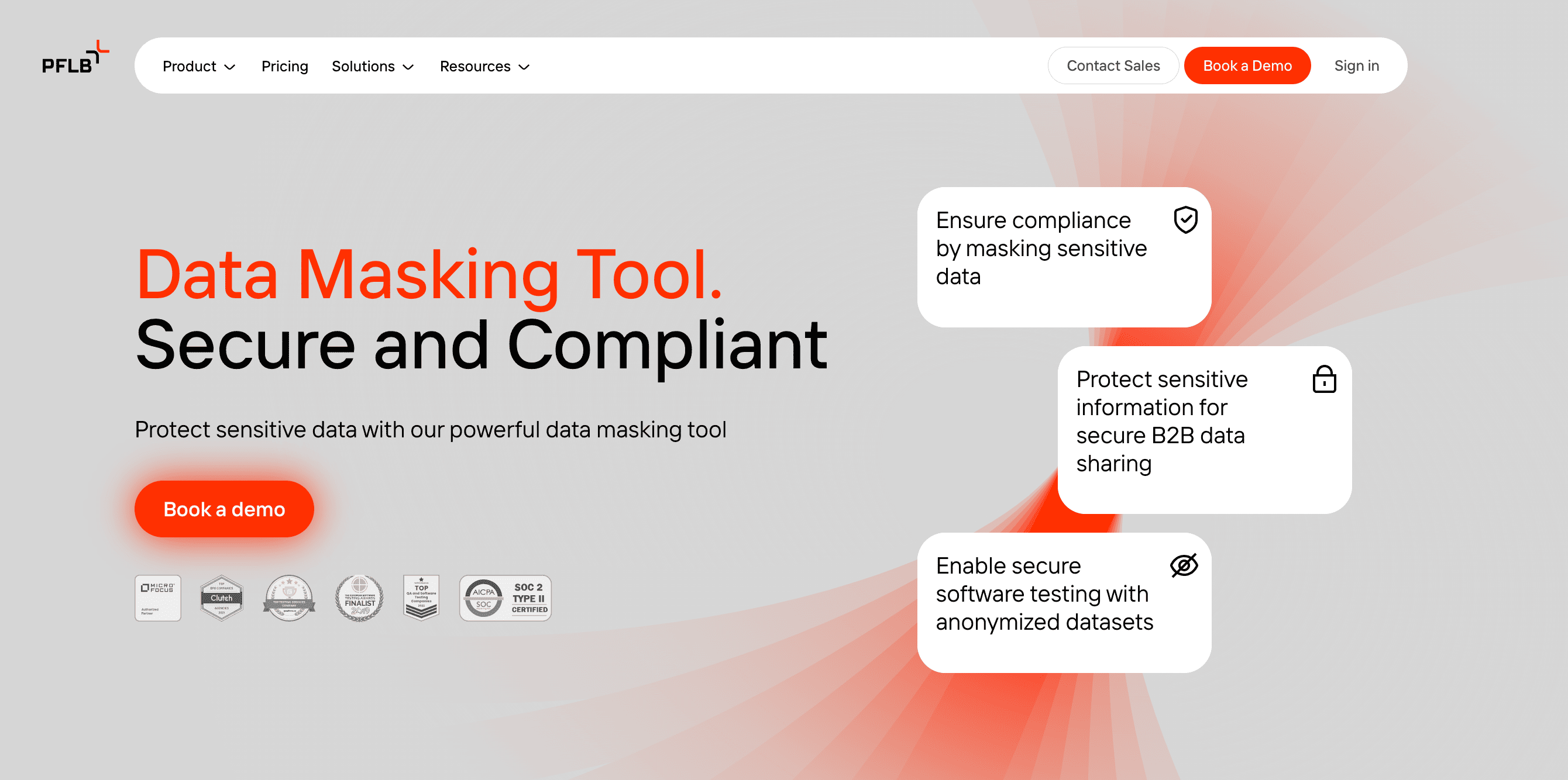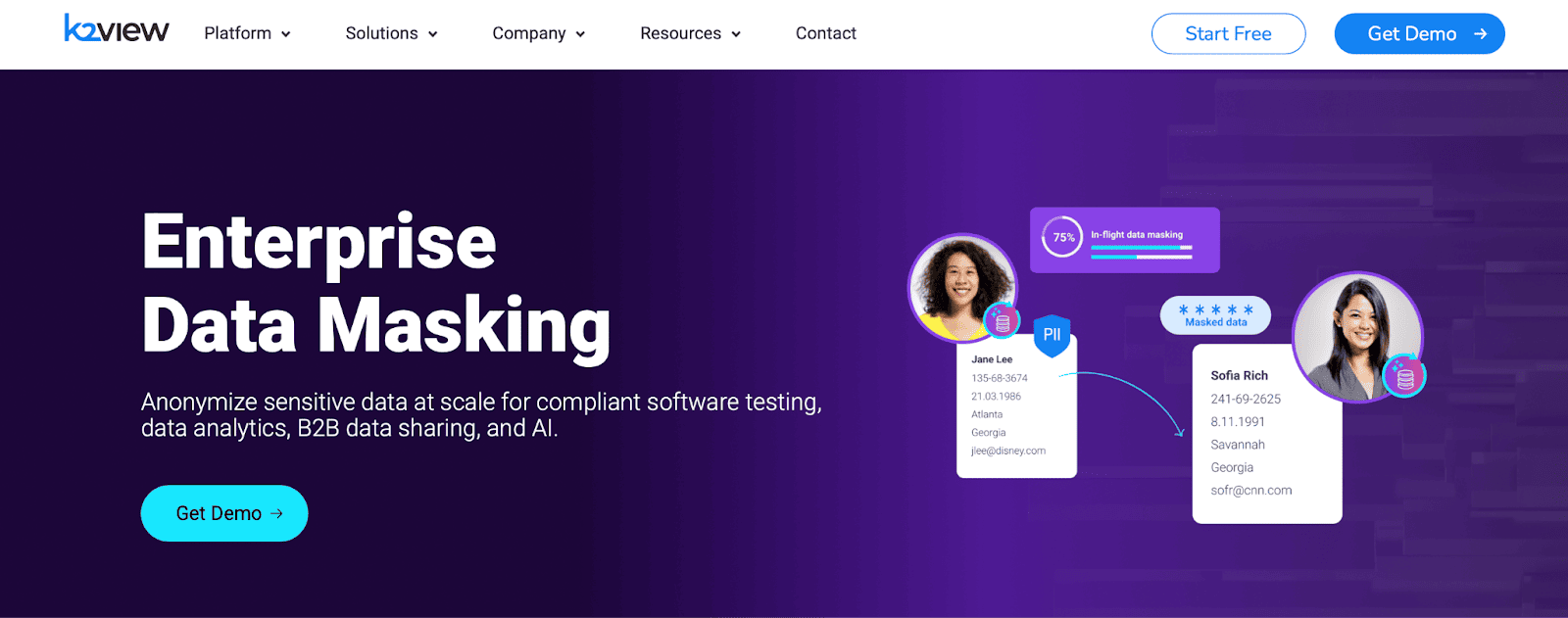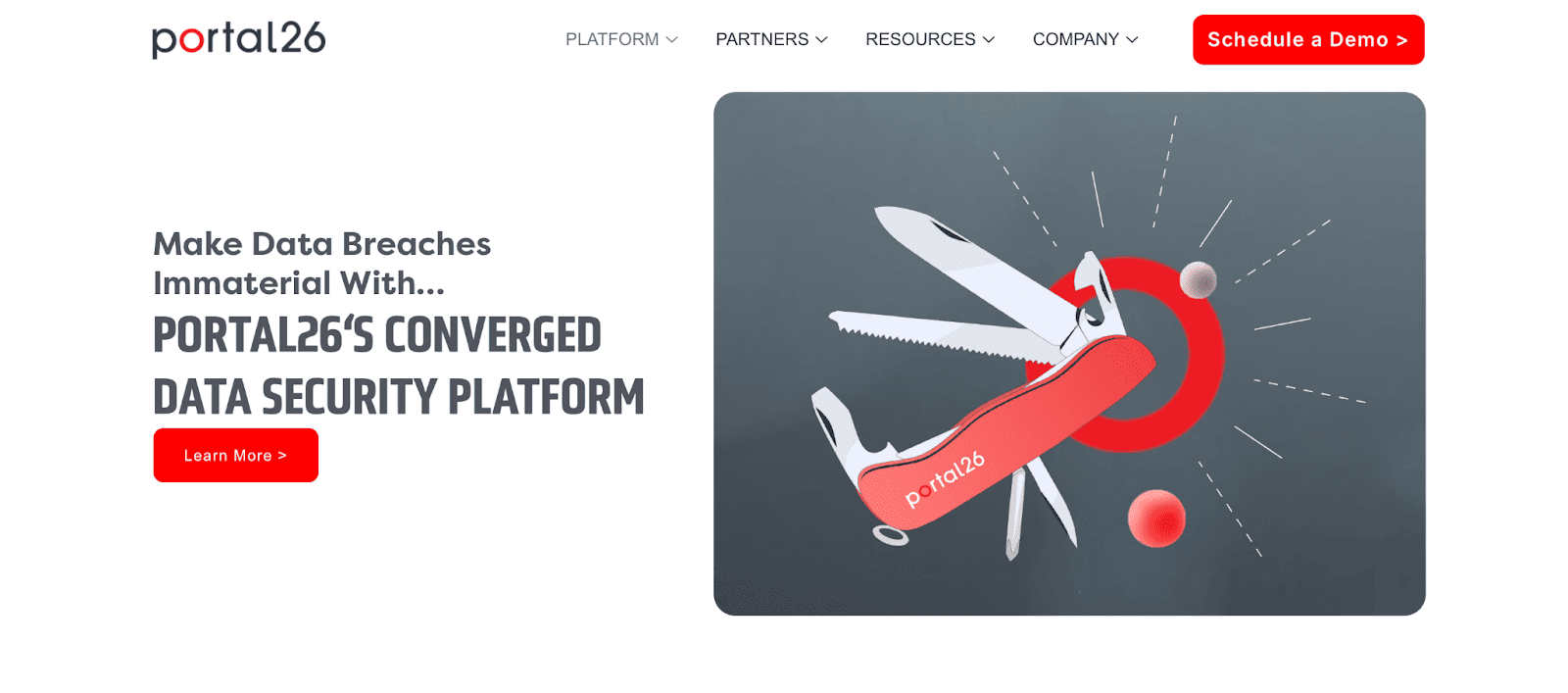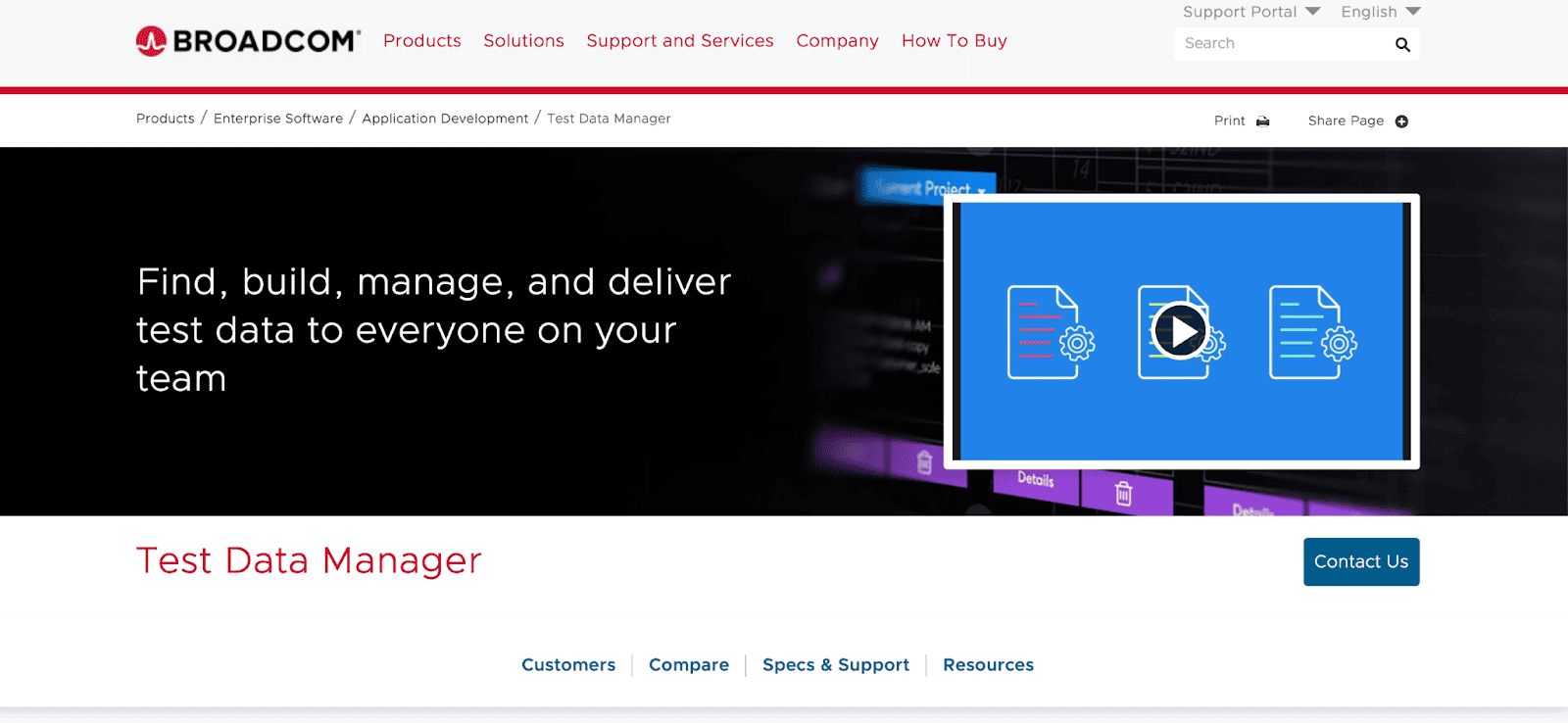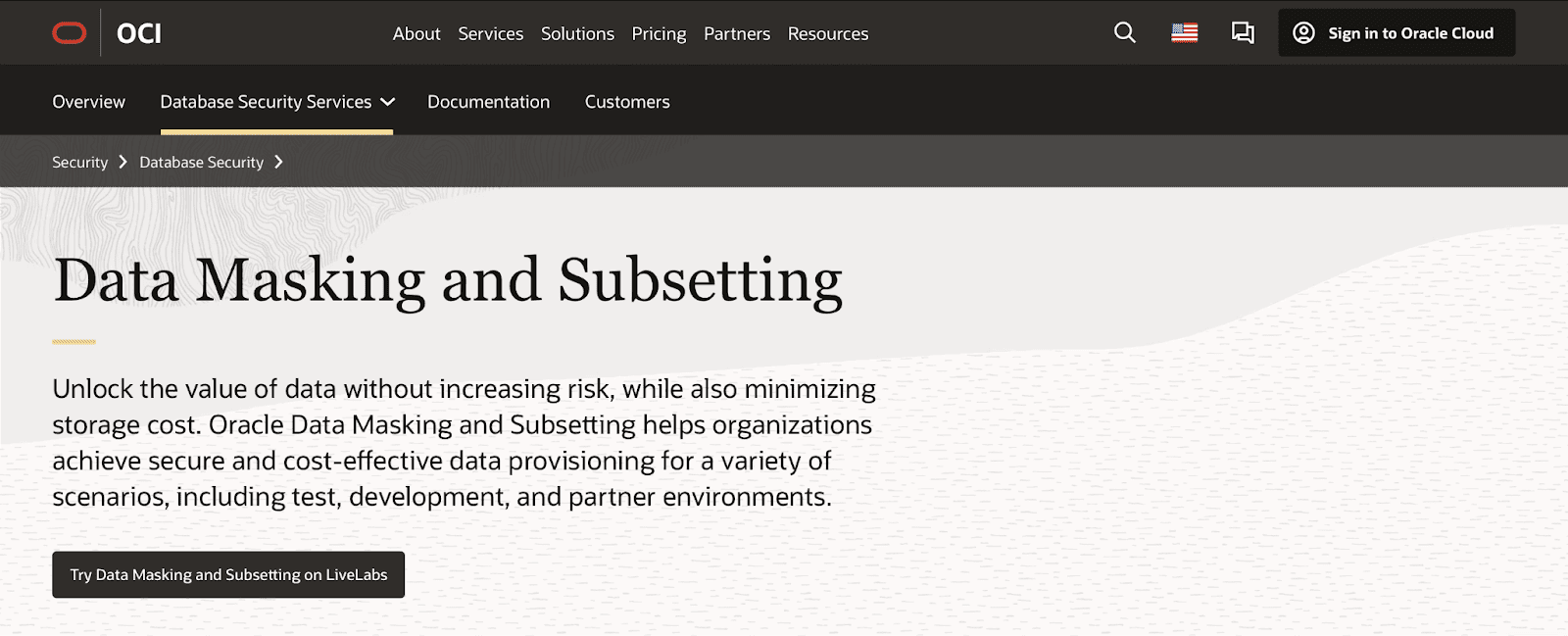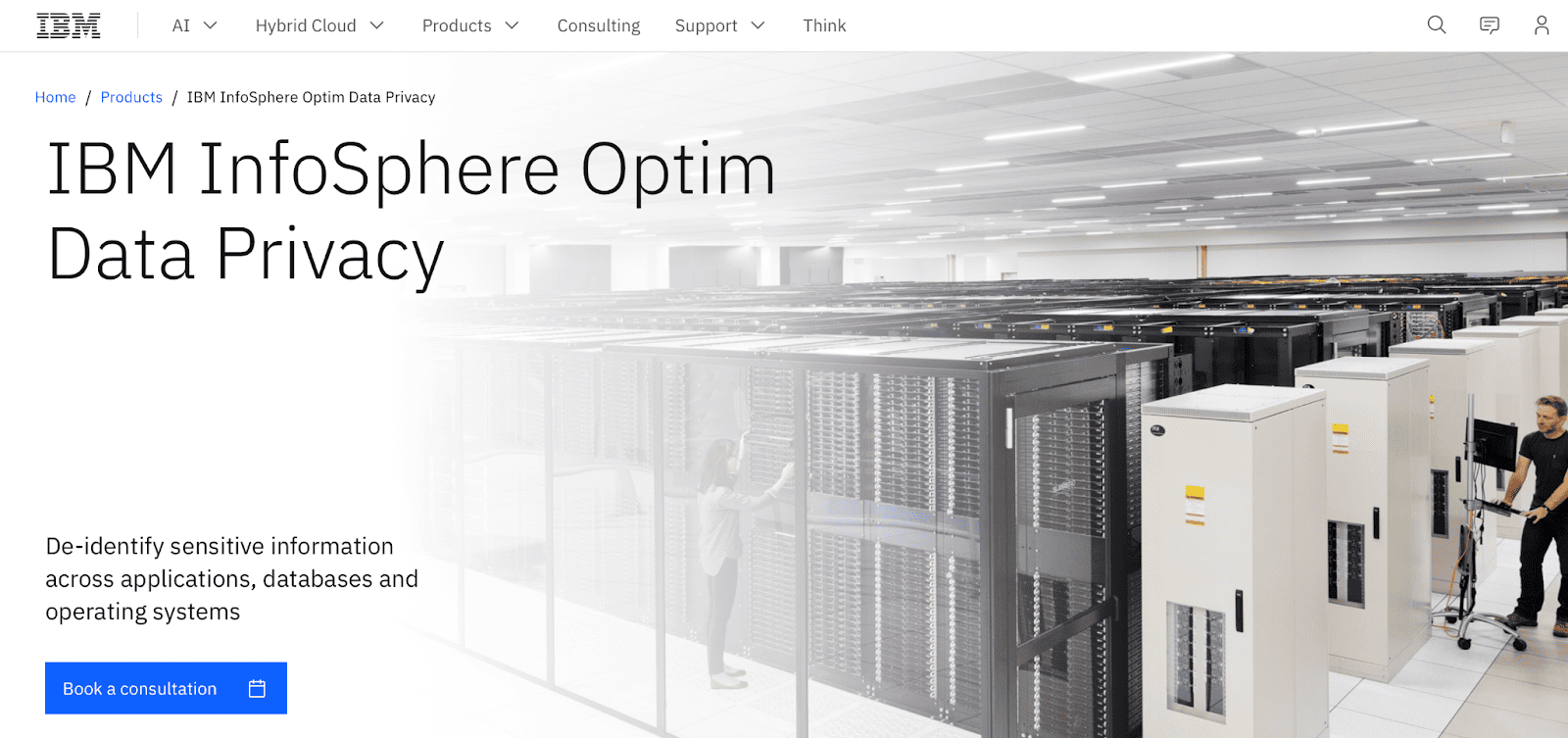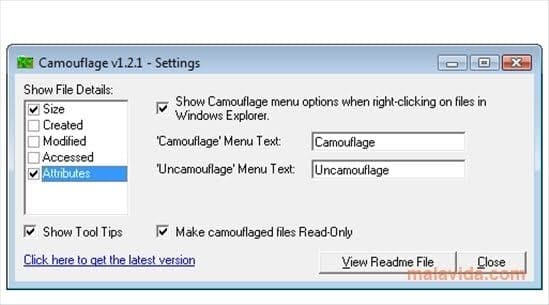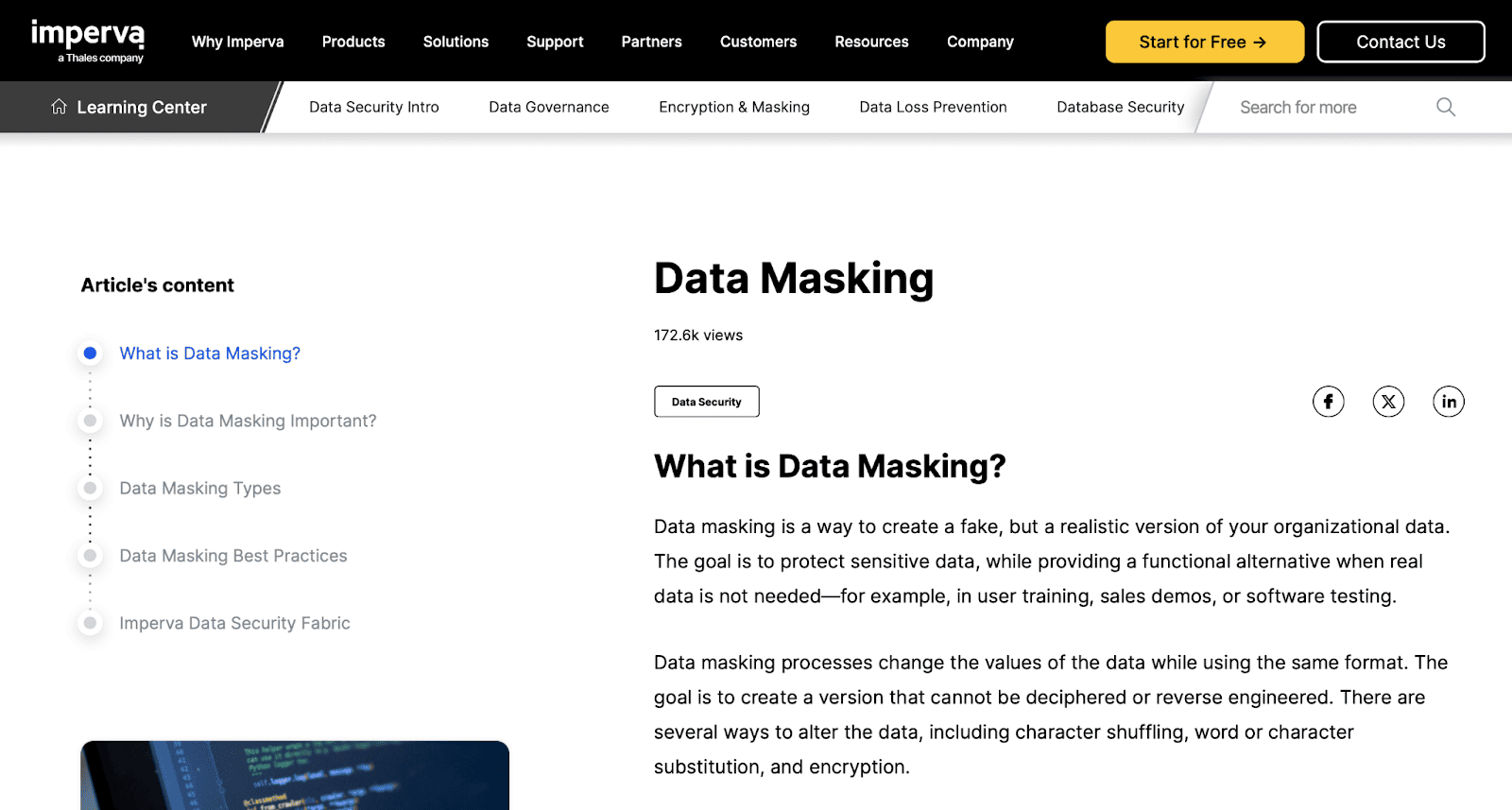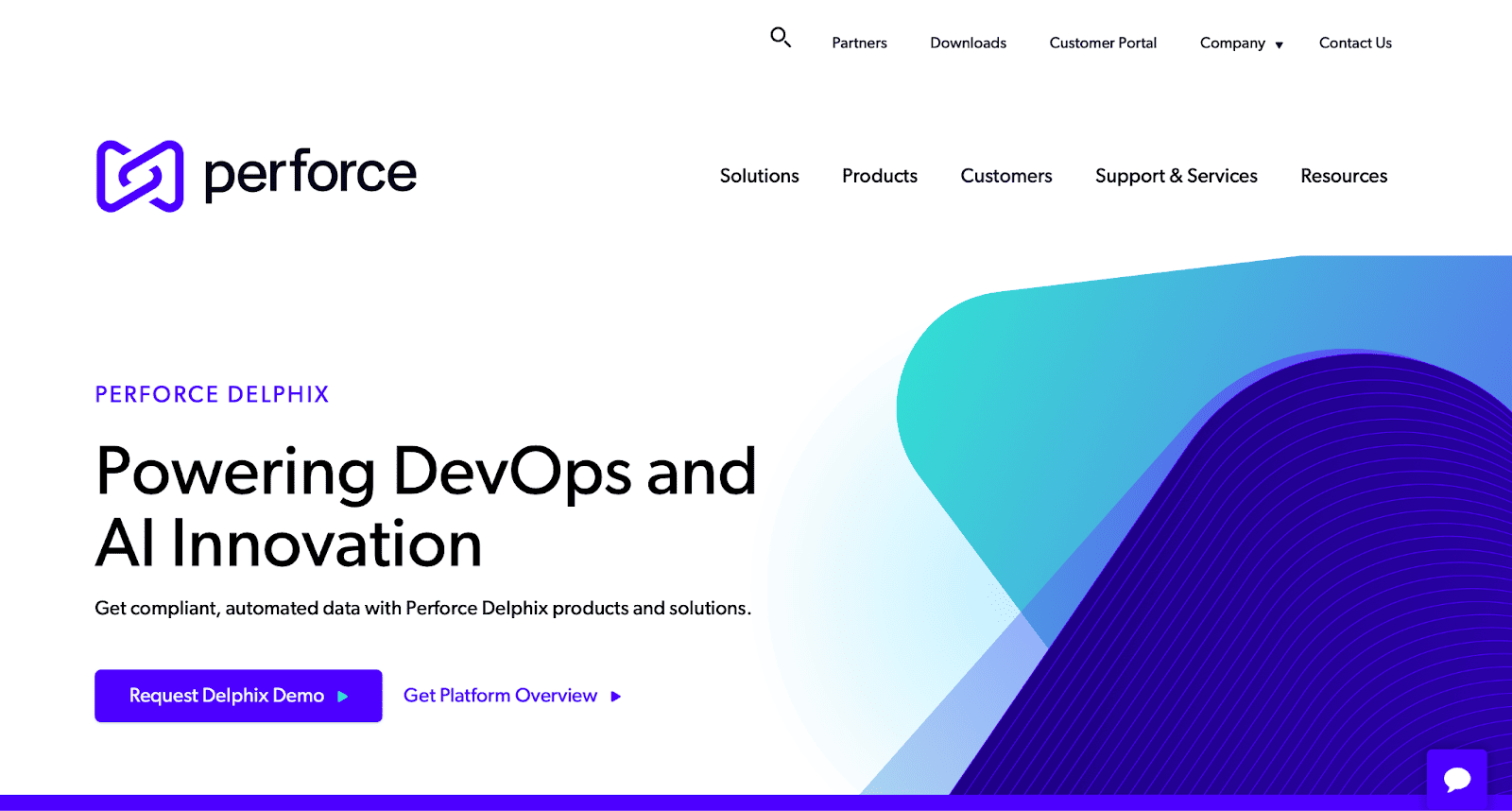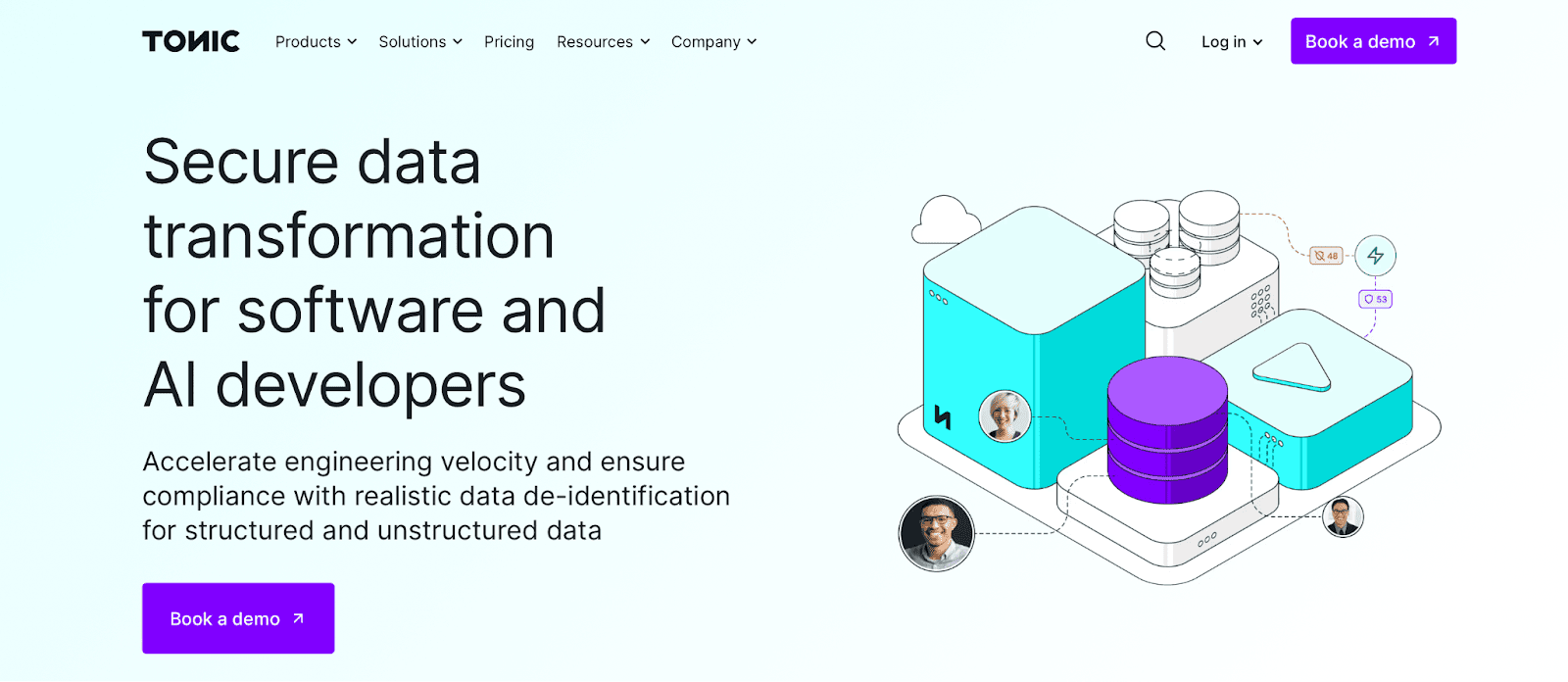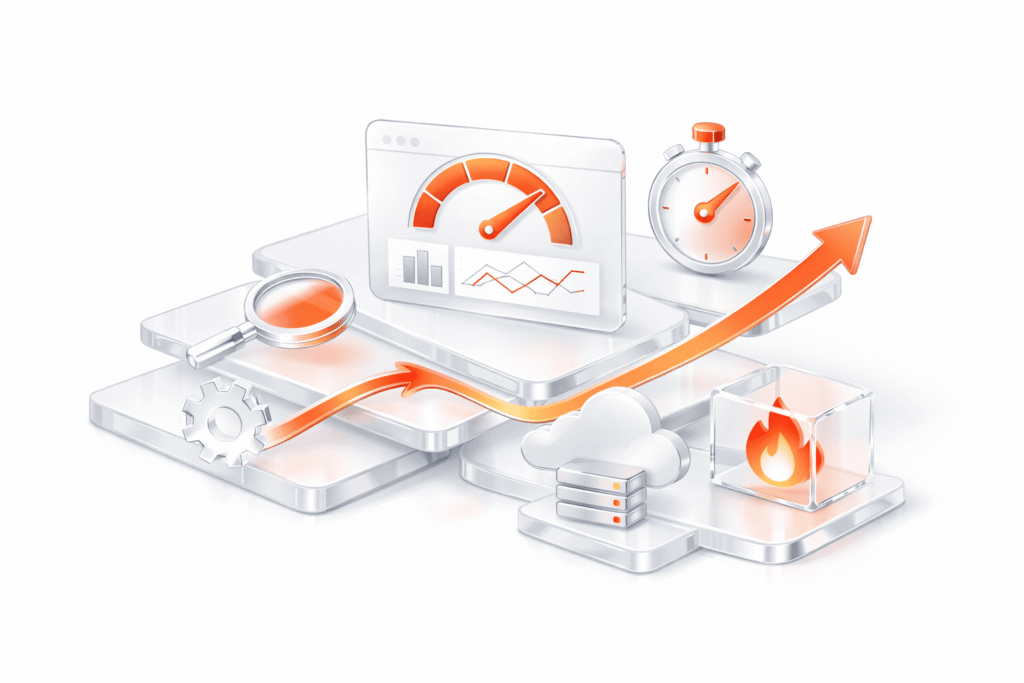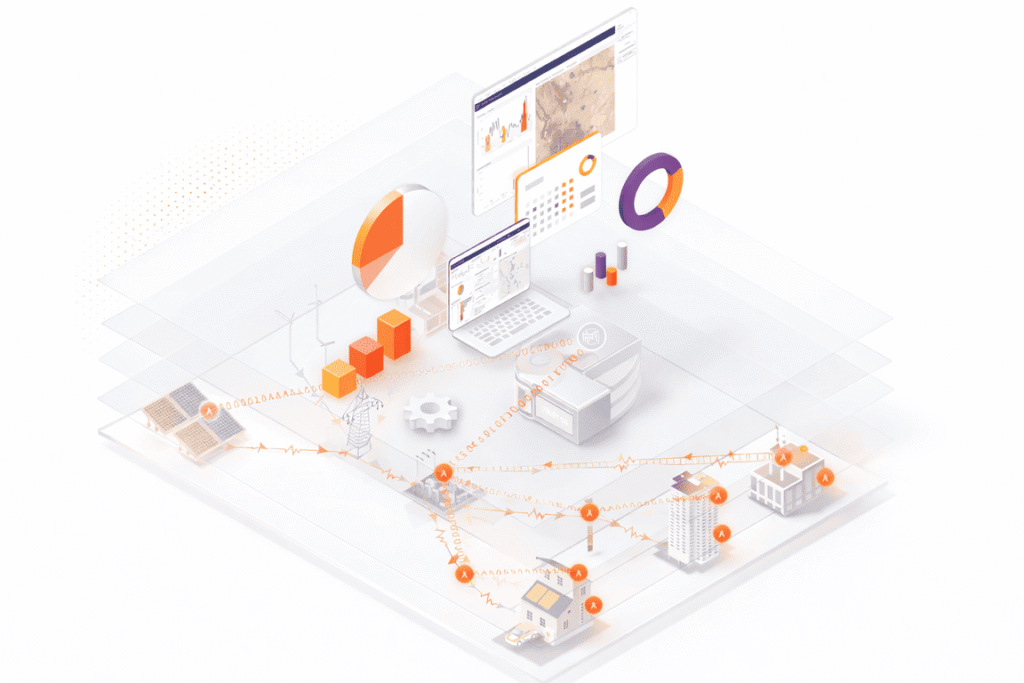Choosing the right data masking platform is critical for ensuring privacy, security, and regulatory compliance, especially as your systems scale. While Informatica Cloud Data Masking is a well-known product, it’s not the only option.
Whether you’re seeking more flexibility, better integration, or cost-effective alternatives to Informatica Cloud Data Masking, this guide presents 10 top powerful tools to consider. You’ll find detailed comparisons, standout features, and insights to help you choose a solution that fits your business needs.
1. PFLB
PFLB’s Data Masking Tool is built for organizations that need to protect sensitive data in large, complex environments without slowing down development or testing workflows. It supports format-preserving masking, tokenization, and anonymization for a wide range of data types, making it easy to work with both structured and semi-structured datasets.
Unlike some rigid tools on the market, PFLB allows for high levels of customization. You can define detailed masking rules, align them with compliance frameworks (like GDPR, HIPAA, or PCI DSS), and adapt them to specific use cases, from anonymizing test data in non-production environments to securing customer records across legacy databases.
It’s particularly well-suited for enterprise teams that need to maintain both data utility and privacy, such as QA engineers, DevOps teams, and performance testers working with realistic but safe datasets.
Key Features
Comparison with Informatica
While Informatica Cloud Data Masking focuses heavily on cloud-native, predefined masking templates, PFLB offers more flexibility and control, especially for hybrid or on-premise environments.
2. K2View
K2View is known for its unique micro-database architecture, which delivers secure, real-time access to masked and tokenized data at the individual record level. Instead of masking data in bulk or in static environments, K2View creates micro-databases per entity (like a customer or account), enabling secure operations directly on live data across various systems.
This makes it especially useful for operational use cases where data privacy must be maintained in real time, such as servicing customers, handling transactions, or supporting call centers. K2View’s architecture supports high performance, distributed environments, and complex enterprise ecosystems.
Key Features
Comparison with Informatica
While Informatica Cloud Data Masking is traditionally focused on batch processes and predefined workflows, K2View excels in real-time operational environments. It’s particularly well-suited for microservice architectures, customer-facing applications, and hybrid cloud setups, areas where Informatica’s more centralized model may be less agile.
K2View’s ability to mask data on the fly while maintaining system responsiveness makes it a strong choice for teams that need privacy and performance simultaneously, especially those comparing tools like Informatica Cloud Data Masking for real-time, operational use cases.
3. Titaniam (now Portal26)
Titaniam positions itself at the intersection of data masking and encryption-in-use, a rare but powerful combination. Unlike most platforms that mask or encrypt data at rest or in transit, Titaniam focuses on keeping data secure even while it’s being queried or processed.
This makes it a standout for organizations handling sensitive analytics, AI/ML workflows, or shared data lakes, where traditional masking isn’t enough. The platform enables fine-grained access control and supports multiple data privacy techniques, masking, tokenization, encryption, in a single interface.
Key Features
Comparison with Informatica
Informatica is strong in enterprise-grade data masking pipelines, but it doesn’t offer encryption-in-use capabilities. That’s where Titaniam brings added value, by protecting sensitive data even when it’s actively queried or shared with third-party analytics tools.
For organizations with complex analytics needs, AI models, or shared environments, Titaniam offers a modern, security-forward alternative that goes beyond the traditional masking scope of Informatica.
4. Broadcom (CA Test Data Manager)
CA Test Data Manager is one of Informatica Cloud Data Masking alternative tools , developed by Broadcom. It is a test data management and masking solution tailored for DevOps and QA teams. It helps accelerate testing cycles by offering on-demand test data generation, dynamic masking, and subsetting for non-production environments.
The platform is especially helpful in environments that require frequent, automated provisioning of masked data across development and testing stages.
Key Features
Comparison with Informatica
Both Broadcom and Informatica support enterprise-scale data masking, but they serve slightly different needs. CA Test Data Manager offers a more DevOps-centric workflow with built-in test data generation, making it ideal for teams seeking automated, test-ready datasets. Informatica, on the other hand, offers broader capabilities in data governance and enterprise data management, making it a strong fit for organizations with complex compliance requirements or cloud-first strategies.
5. Oracle Data Masking and Subsetting
Oracle’s Data Masking and Subsetting Pack is an extension of Oracle Enterprise Manager, designed to protect sensitive data in Oracle databases through built-in masking routines and data subsetting capabilities. It’s tightly integrated with Oracle’s broader ecosystem, allowing organizations to secure their environments without leaving the Oracle stack.
It’s particularly effective for organizations already standardized on Oracle infrastructure.
Key Features
Comparison with Informatica
Both Oracle and Informatica offer strong data masking capabilities. Oracle’s solution is especially valuable for organizations using the Oracle tech stack, providing deep, out-of-the-box integration. Informatica Cloud Data Masking, however, supports a broader range of platforms, making it well-suited for heterogeneous IT environments where multiple databases and cloud systems need to be masked through a single interface.
6. IBM InfoSphere Optim Data Privacy
IBM InfoSphere Optim Data Privacy is part of IBM’s enterprise data management suite and is designed to protect sensitive information through structured data masking, subsetting, and archiving. It helps organizations meet regulatory requirements by applying consistent, policy-driven data privacy measures across production and non-production environments.
Its strength lies in handling complex data relationships across multiple platforms and integrating seamlessly with legacy systems.
Key Features
Comparison with Informatica
Both IBM and Informatica offer enterprise-grade data masking solutions. IBM InfoSphere is particularly well-suited for organizations managing legacy systems and looking for long-term data retention and auditability. Informatica Cloud Data Masking, on the other hand, is more oriented toward cloud-native applications and high-volume data masking across modern architectures.
Each product addresses different infrastructure and compliance priorities, depending on the organization’s ecosystem.
7. Camouflage Software
Camouflage Software, now under the Informatica umbrella, continues to serve as a flexible and customizable data masking solution. It focuses on meeting strict privacy regulations like GDPR, HIPAA, and PCI DSS, and is known for supporting a wide range of data sources with a high degree of configuration.
Even after its acquisition, Camouflage remains relevant for teams that require fine-tuned masking rules and support for less common or industry-specific platforms.
Key Features
Comparison with Informatica
While Camouflage and Informatica are now part of the same ecosystem, they can still serve distinct needs. Camouflage provides deeper configurability and a more flexible rule-building engine, making it suitable for specialized use cases. Informatica Cloud Data Masking offers a more unified experience for teams already using other Informatica data integration and governance tools.
Organizations may choose Camouflage when they need custom data masking logic or are working with niche platforms not fully supported in standardized environments.
8. Imperva Data Masking
Imperva is one of Informatica Cloud Data Masking competitors and approaches data masking from a security-first perspective, embedding masking within its broader data security platform. It helps organizations protect sensitive data both in production and non-production environments through centralized policy enforcement, real-time masking, and detailed activity logging.
This makes it especially useful for companies with strict security and compliance mandates that require deep visibility into how sensitive data is accessed and handled.
Key Features
Comparison with Informatica
Both Imperva and Informatica Cloud Data Masking deliver strong capabilities, but serve slightly different purposes. Imperva is designed with a focus on security operations, offering deep visibility, real-time control, and compliance reporting. Informatica, meanwhile, offers broader integration with enterprise data management, governance, and cloud data pipelines, making it ideal for organizations prioritizing unified data workflows across departments.
9. Delphix
Delphix is a modern data platform that combines data virtualization and data masking to streamline test data management. It enables teams to create lightweight, masked versions of production data on demand, without having to move or replicate full datasets.Delphix is widely used by DevOps and QA teams for fast, secure test data delivery, especially in complex development environments that require high test coverage with real data realism.
Key Features
Comparison with Informatica
Delphix is particularly effective in agile development environments, where masked test data needs to be delivered quickly and repeatedly. Informatica, by contrast, excels in data governance and integration for enterprises needing scalable data masking across multiple systems and use cases. Both are strong platforms, but Delphix focuses more on accelerating DevOps workflows through virtualization.
10. Tonic.ai
Tonic.ai is a developer-focused platform that provides synthetic data generation and smart data anonymization for testing, analytics, and machine learning environments. Instead of masking existing data, Tonic can generate high-quality synthetic datasets that maintain the structure, logic, and statistical patterns of production data, without exposing sensitive information.
It’s especially well-suited for engineering teams, data scientists, and organizations experimenting with AI/ML, where realistic but safe data is essential.
Key Features
Comparison with Informatica
Tonic.ai stands out for its emphasis on developer usability and synthetic data realism, while Informatica Cloud Data Masking offers more robust enterprise-wide capabilities like workflow orchestration, multi-domain governance, and integration with large data platforms. Organizations may choose Tonic when they need agile, privacy-safe test data without relying on production clones.
Consider PFLB as the Best Informatica Cloud Data Masking Alternative
PFLB is a trusted partner for organizations seeking precision, speed, and scalability in their data masking strategy. Our solution is purpose-built for complex enterprise environments that require more than preconfigured templates.
Why Choose PFLB?
Final Thought
Selecting the right data masking tool hinges on your infrastructure, compliance obligations, and integration requirements. Informatica Cloud Data Masking is a strong option, but it may not serve every use case, especially for teams requiring real-time adaptability or deep DevOps alignment.
This comparison of Informatica Cloud Data Masking alternatives introduces a diverse set of tools, each optimized for different business goals, from synthetic test data creation to encryption-in-use protection. If your priority is secure, flexible, and performance-aligned masking, PFLB offers a robust solution trusted by enterprises worldwide.


